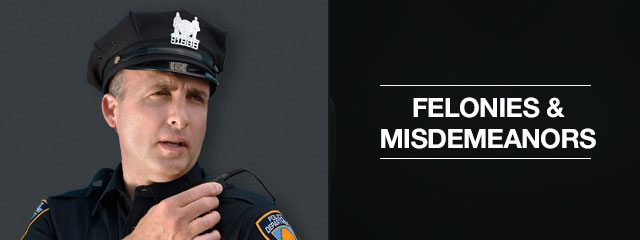Everybody knows that a crime is an act that broke the law and that can be punished. However, not everybody understands that there are different levels of crimes. Adam M Smith explains them as being infractions, misdemeanors, and felonies. The later two are the most important to understand, as they are the ones that could lead to prison sentences. The exact differences between the two vary depending on the state, or even the district, in which they were committed, but there are some key differences that are always in place.
Adam M Smith Separates Misdemeanors from Felonies
Men/women charged with a felony are facing charges that could land them in prison for more than one year, all the way up to the death penalty. A crime for which the consequence is less than one year in prison, and smaller fines, is one that is classed as a misdemeanor. However, there are misdemeanor offenses that can lead to sentences that would suggest it was actually a felony, so you should not differentiate on time in prison alone.
If someone is charged with a felony crime, further criminal procedures have to be followed. For instance, in many states, their case will first have to be heard by a grand jury. Regardless of what type of charge someone faces, however, their Miranda Rights must be upheld, which means they have the right to an attorney and they have the right to remain silent. Grand juries sit for an 18 month term, generally starting in June or in December, and they determine whether or not a felony crime is likely to have been committed. They do not, therefore, establish guilty.
The Seriousness of Felony Crimes
Felony crimes are very serious crimes that can lead to lengthy incarcerations and even, in states where it exists, the death penalty. Not just that, there are certain states that uphold the three strikes rule. This means that someone who has already been convicted of two felony crimes in the past will automatically spend life in prison, even if the third felony crime would normally only be sentenced by a year in prison.
There are other important consequences to a felony crime. For instance, convicted felons cannot practice licensed professions anymore and they lose their right to vote. They are also restricted from serving on a jury, both grand jury and petit jury.
In all states, embezzlement, racketeering, grand theft, kidnapping, murder, and rape are classed as felony crimes. Assault causing bodily harm, sexual abuse, and serious drug crimes are also generally seen as felonies. Many states also have further sub-qualifications or degrees, which denote the seriousness of the crime itself.
Misdemeanor Crimes
Misdemeanor crimes are also serious, but the punishment is far less severe. Often, people only have to pay a fine or, if they do go to jail, it is for less than a year. Indeed, community service is often all that is required. No grand jury hearing is needed with a misdemeanor either. In fact, in some cases, someone can simply pay a fine and not go to trial at all. That said, they still have the same Miranda Rights. Additionally, if convicted and the accused is older than 18, the misdemeanor will go on their permanent record and will show up during a background check.

 2018 ·
2018 ·